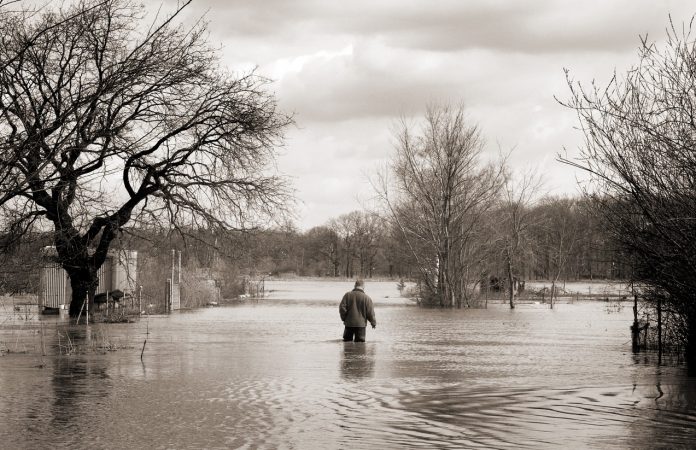
Even if you don’t live in a specified flood zone, it’s still important to have a plan. Almost everyone is susceptible to flooding no matter how far inland you are — the Nashville flood of 2010 proved that.
If you do live in a specified flood zone, you’ve probably put a few supplies together for a worst-case scenario, but it’s entirely possible you’ve overlooked something crucial. Whether you want to double check your own plan or help someone else put one together, we’ve created a handy guide on how to prepare and survive a flood as well as what to do during the aftermath.
Stockpile Fresh Water and Evacuate if You Can
The best way to survive a flood is to avoid it — get out of town if at all possible.
If you’re stranded in your house, then clean water is the most important commodity during a flood situation. You wouldn’t think finding water would be a huge concern when it’s filling up the streets, but that water isn’t safe. In fact, one of the smartest things you can do is invest in water purification products.
Start by stockpiling bottled water. You don’t even have to buy water if you’re preparing in advance. Fill used, clean jugs with water from your own tap ahead of time. There’s no telling how long you’ll be stranded for, so gather more water than you think you’ll need.
Other Essential Items
Have at least one easily accessible medkit. Your next purchase should be an emergency radio. They come in many varieties, but try to pick one that has multiple power sources (solar, wind-up crank, battery, etc.) A multitool or emergency knife with a seatbelt cutter and glass breaker is also essential, especially if you’re unlucky enough to get caught in your car during a flood.
Research Flood Zones and Ensure Your House is Reinforced
You’ll need to know if your area is susceptible to floods and how intense the flooding can get before you prep your home for a flood. FEMA’s flood zone map is one of your best resources. You can also check your local government for additional flood zone information.
It’s easier to prepare your home for potential flooding now that you know what you’re up against. If your home isn’t built to be flood-resistant, you can create external barriers with sandbags and/or concrete or rock and dig channels to redirect water away from the house. Make your doors as water-proof as possible, especially basement doors.
Don’t forget to unplug and turn off all electrical appliances. Turn off your circuit breaker and disconnect the gas line, if possible. The last thing you need during a flood is an electrical fire or a gas leak. Remember, emergency personnel are going to be busy and may not be able to get to you to begin with.
During the Flood
Keep everyone together! Never let anyone wander off on their own unless it’s absolutely necessary. Ensure that any children and pets stay within line of sight at all times. Having to search for a lost person lowers everyone’s chances of survival. Children are especially apt to think it would be fun to play in a flooded street, but even a shallow flood can be dangerous.
Never tread through moving water — you don’t know how strong the current is. The water current is almost always stronger below the surface, which creates undertows that can drag and trap you underwater. It’s extremely easy to drown, even if the water looks safe on the surface.
Stay out of the streets until you know it’s safe.Use a stick to check the water level and to find any debris in your path. Avoid any fallen power lines and electrical devices swept away in the flood.
The Aftermath
Use a AM/FM radio and listen to emergency broadcasts for direction. You may need to travel to an emergency shelter or follow other special instructions from your local authorities. Working together with others is your best chance of survival.
Don’t drive into flooded areas and don’t ignore roadblocks sectioning off flooded zones. You may think your vehicle can traverse a small amount of water, but your car WILL float away if the water is deep enough. Drive to the nearest safe zone as soon as possible while the water clears out.
Finally, consider sharing resources with your neighbors. You probably lack something they have and vice versa. Pool your efforts to get you and your family to safety while the storm passes. You can always rebuild your home as long as you stay alive.











